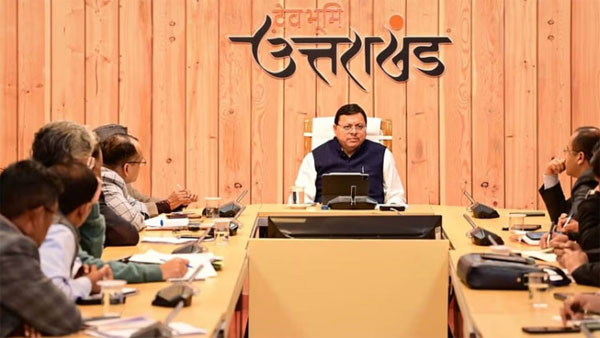Daijiworld Media Network - Lucknow
Lucknow, Aug 18: The Uttarakhand Cabinet has approved the Minority Educational Institutions Bill, 2025, a landmark move that extends minority status benefits beyond the Muslim community to include Sikhs, Jains, Christians, Buddhists, and Parsis. While the government touts the initiative as a push for inclusivity and transparency in minority education, the decision has sparked sharp criticism, particularly from Muslim leaders.
Set to be tabled in the Legislative Assembly on August 19, the proposed Bill aims to standardise the process for recognizing minority educational institutions in the state. It also seeks to enhance educational quality while upholding constitutional rights of all recognised minority communities.
A key provision of the Bill is the repeal of the Uttarakhand Madrasa Education Board Act, 2016, and the Uttarakhand Non-Government Arabic and Persian Madrasa Recognition Rules, 2019. Both will be scrapped effective July 1, 2026, effectively dissolving any independent education board or regulatory framework currently in place for madrasas.

The state government has indicated plans to create a new centralized authority under the upcoming law that would regulate all minority institutions under a single system, moving away from community-specific boards and rules.
Until now, minority education status in Uttarakhand was largely limited to Muslim institutions. The proposed legislation seeks to broaden this definition, aligning with India’s constitutional recognition of six religious minorities.
In a notable curricular shift, the Bill also allows the inclusion of Gurmukhi and Pali languages in recognised minority institutions, in addition to existing subjects.
Calling it a “historic” first in India, the Uttarakhand government claims the Bill is aimed at ensuring transparency, standardisation, and educational excellence for all religious minorities.
However, the move has met with fierce opposition. Prominent Islamic scholar Maulana Sufiyan Nizami condemned the development, labelling it discriminatory.
“What’s happening to Muslims in Uttarakhand is no secret. The government’s actions continue to reveal its bias,” Nizami told IANS. “On one hand, the Centre talks about modernising madrasas with initiatives like the Quran in one hand and a laptop in the other. On the other, Uttarakhand is dismantling the Madrasa Board altogether. This exposes the state’s real intentions.”
He urged Prime Minister Narendra Modi to intervene and assess whether such policies align with the promises made by the central government to modernise and empower the Muslim community.
As the Assembly prepares to debate the Bill, the issue is likely to stir further political and social debate, with its implications touching both religious identity and educational autonomy.